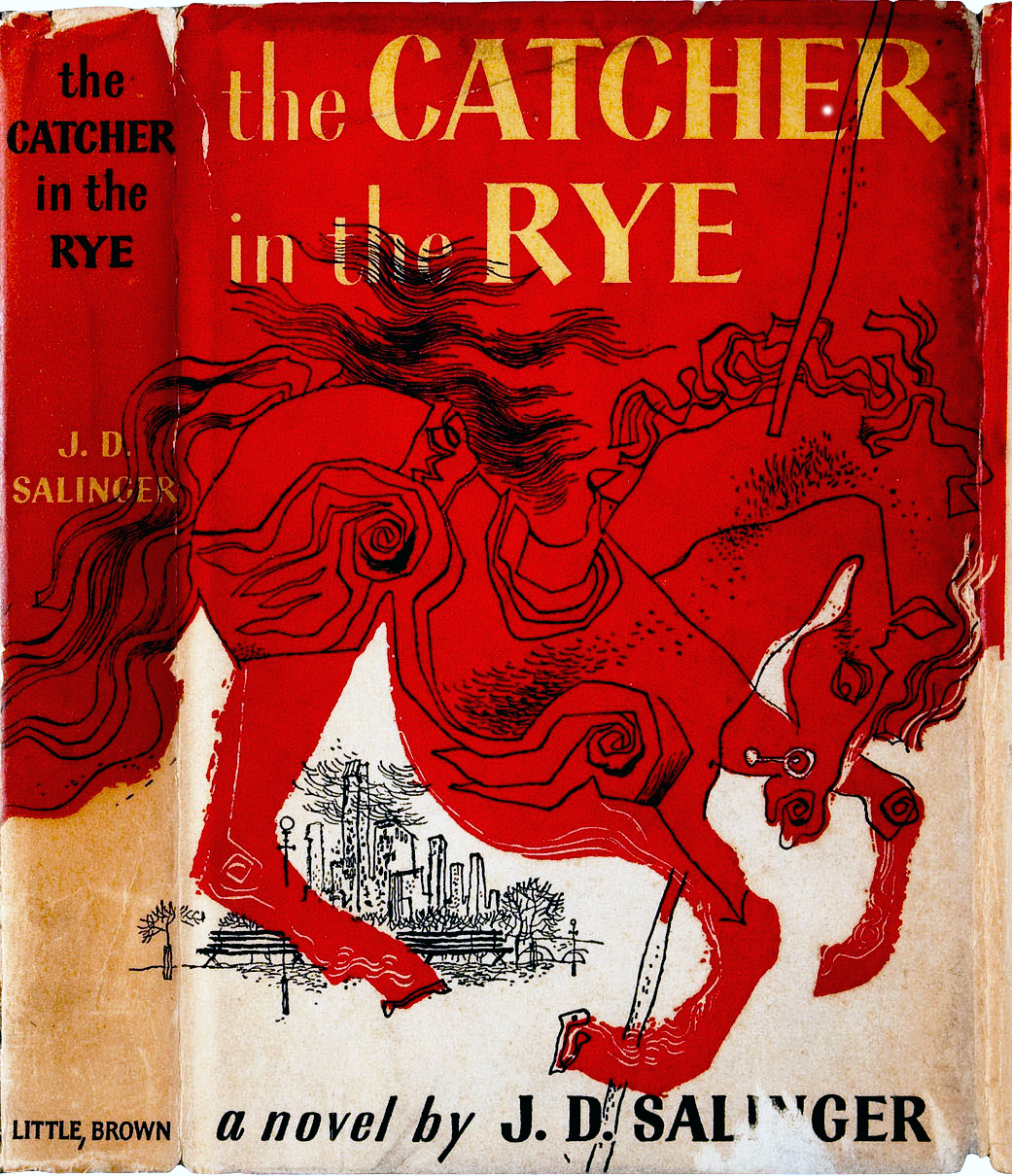The Catcher in the Rye by J.D. Salinger tells the story of Holden Caulfield, a teenager who sneaks out of his boarding school to travel across various cities and towns, just to reach his home and meet the only one whom he truly loves, his sister, Phoebe.
Originally intended for adults, the book subsequently became famous among teenagers due to its highly relatable situations and connection with the main character. It sort of became a ‘bible’ for teenagers and the main character, Holden Caulfield became a teen icon ever since. The book explores various themes such as adolescent alienation, teen angst, identity, innocence, loss, belongingness, depression and sexual maturity and parental negligence.
The novel being set in a post-World War II society, creates this allusion between teenagers and World War II veterans. Post the Second World War, many army people found it difficult to adapt to the “normal” society as it questioned their existence, purpose of life and effected by PTSD. The author, J.D Salinger, was himself a soldier in Second World war and suffered from PTSD for a long time. Thus, an allusion can be seen as to how teenagers and soldiers suffered to adjust in the society.
The novel is narrated from Holden’s point of view, thereby it is very subjective in its approach, following a stream of “consciousness” method, by giving out the thoughts and feelings of the main character. The book also includes many words which are primarily used among teenagers such as phony(fake), that killed me (hilarious or surprising), snowing (sweet talk).
The book presents Holden’s character as unchanged i.e., his arc remains the same right from the start to the end with no internal change within him. Holden is quite in the midst of childhood and adulthood and some scholars say that Holden’s mental state is of an adult but some say that he still has that childlike innocence within him.
In the biography of Salinger, David Shields and Shane Salerno argue that “The Catcher in the Rye can best be understood as a disguised war novel.” Salinger witnessed the horrors of World War II, but rather than writing a combat novel, Salinger, according to Shields and Salerno, “took the trauma of war and embedded it within what looked to the naked eye like a coming-of-age novel.
Coming to the title of the novel, it means that Holden is the “catcher” in a field of “rye” where he saves children from falling of the “cliff”, a metaphor for how children lose their innocence because of harsh realities of the world. As Holden finds children much better than adults, as they still hold that cuteness and innocence within them, he feels that he should be a catcher to save the children who ought not be the “fallen”.
The Catcher in the Rye has been consistently listed as one of the best novels of the twentieth century. In June 2009, the BBC’s Finlo Rohrer wrote that, 58 years since its publication, the book is still regarded “as the defining work on what it is like to be a teenager”. Bill Gates said that The Catcher in the Rye is one of his favorite books.
Despite the fame and popularity, the book has been banned in many parts and schools of America, primarily due to its strong language and the violent nature. Many teachers were expelled from schools for assigning the book to their students. Shelley Keller-Gage, a high school teacher who faced objections after assigning the novel in her class, noted that “the challengers are being just like Holden… They are trying to be catchers in the rye”. Between 1961 and 1982, The Catcher in the Rye was the most censored book in high schools and libraries in the United States. The book was briefly banned in the Issaquah School District of Washington in 1978 after three members of the School Board alleged the book was part of an “overall communist plot”. American critic and essayist, Louis Menand, best known for his Pulitzer-winning book, The Metaphysical Club, thought that teachers assign the novel because of the optimistic ending, to teach adolescent readers that “alienation is just a phase.”
